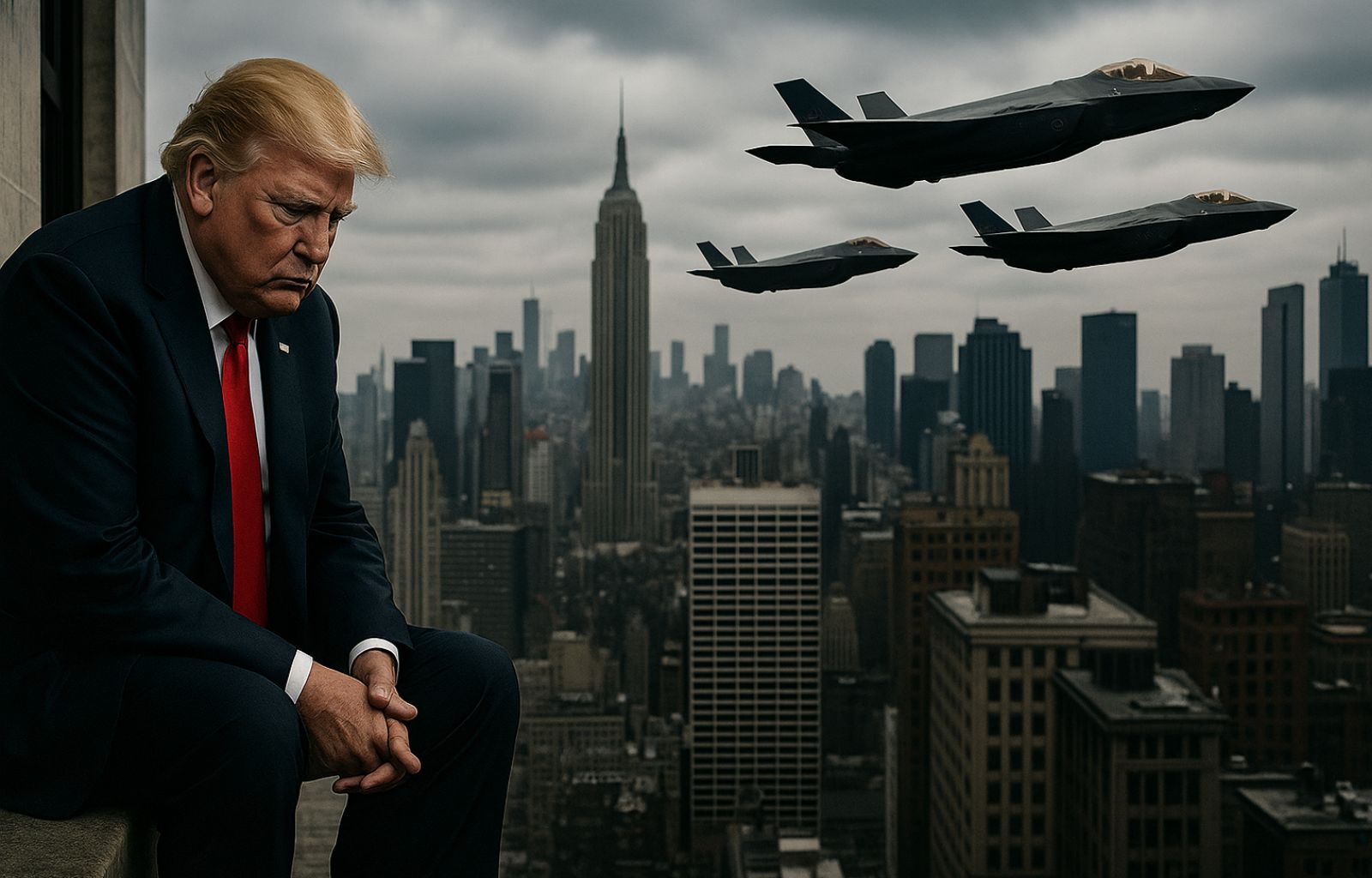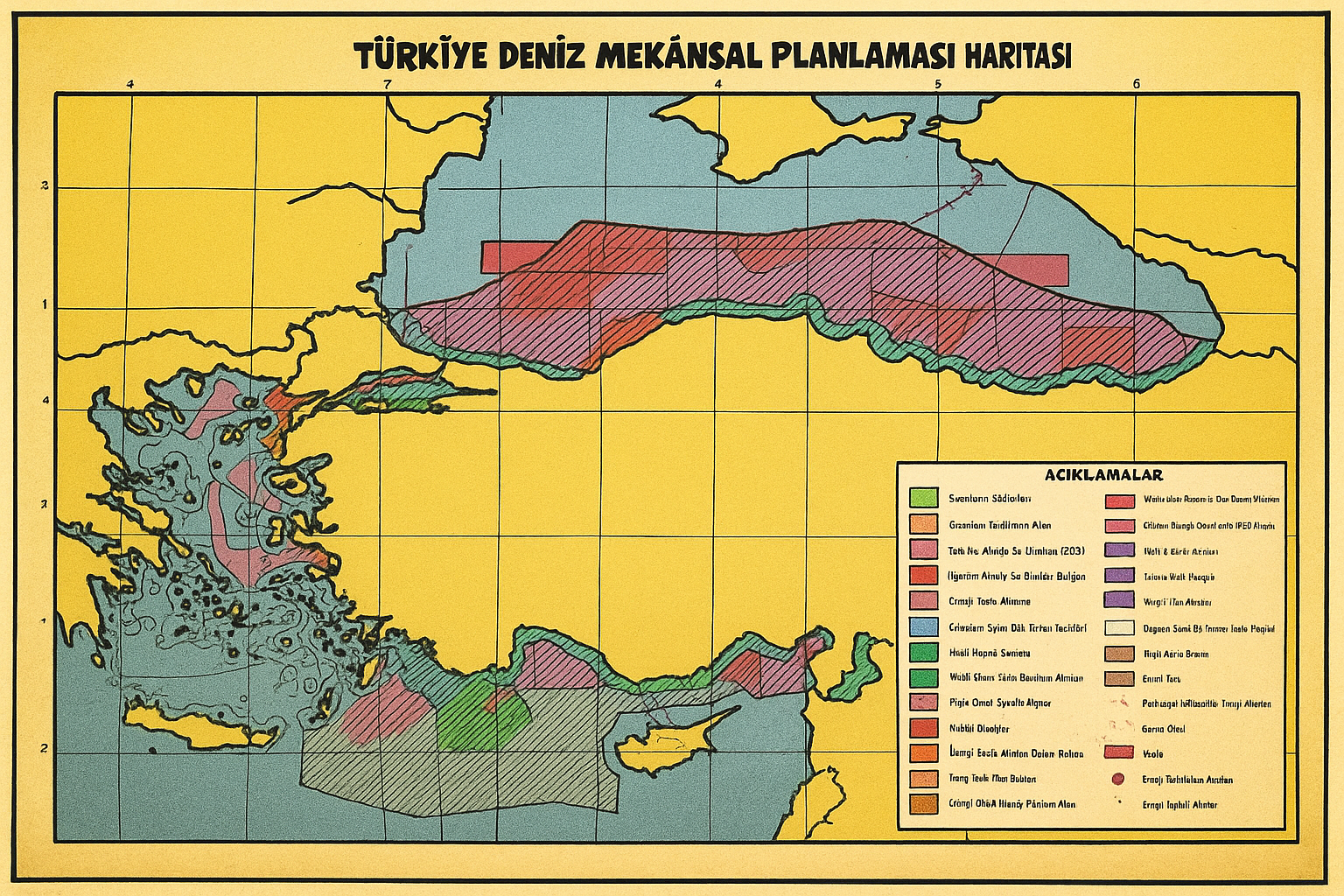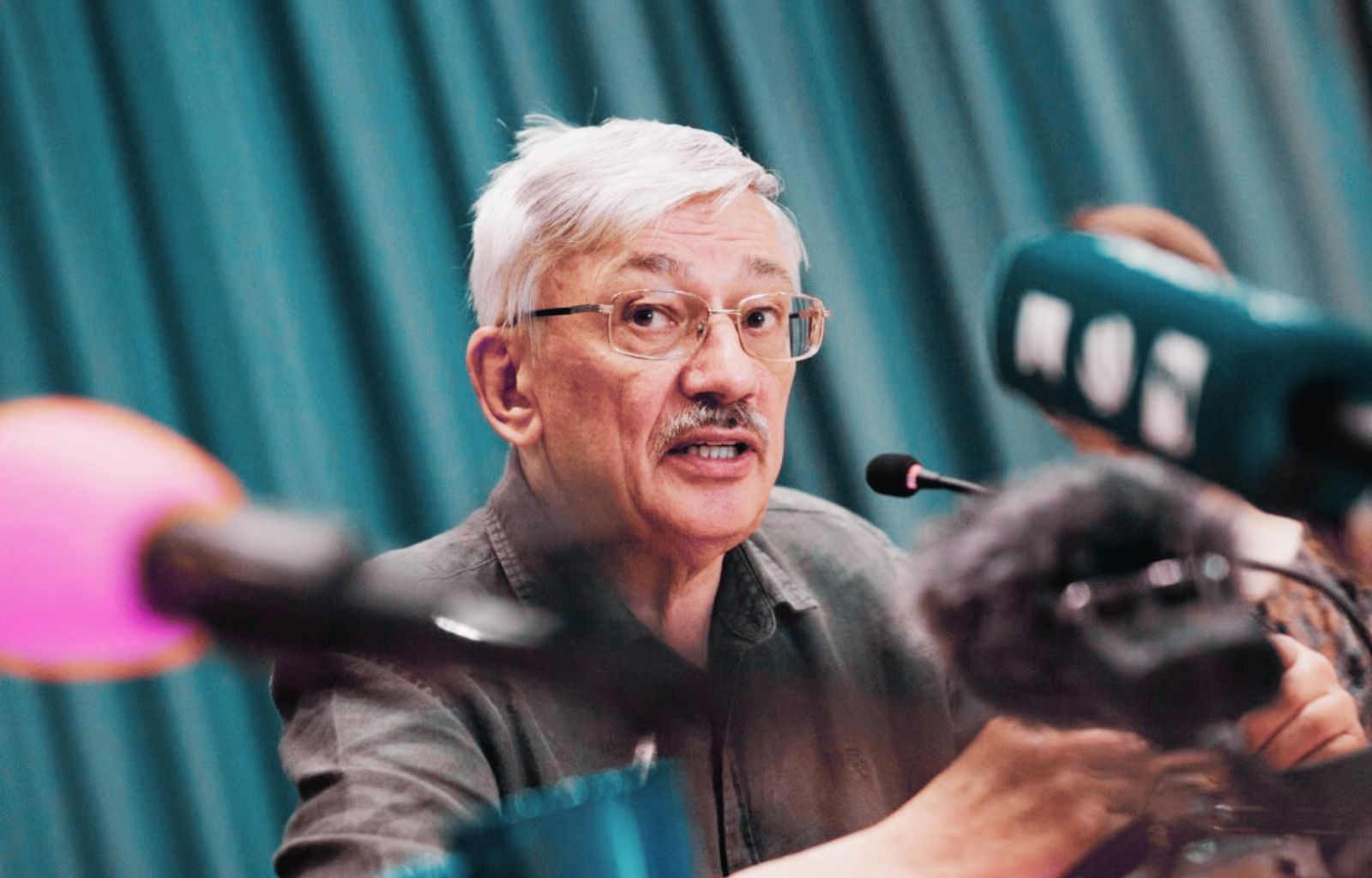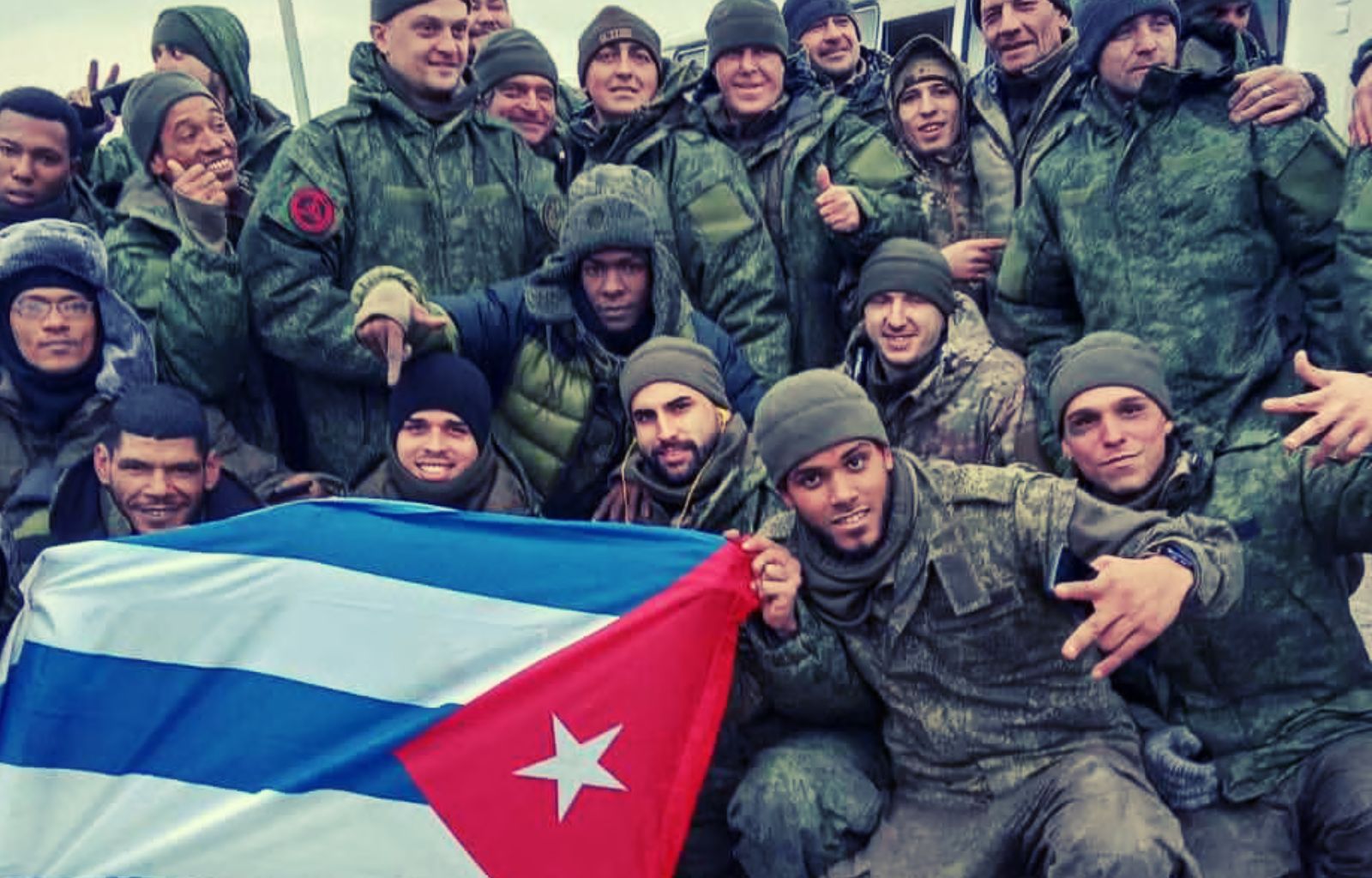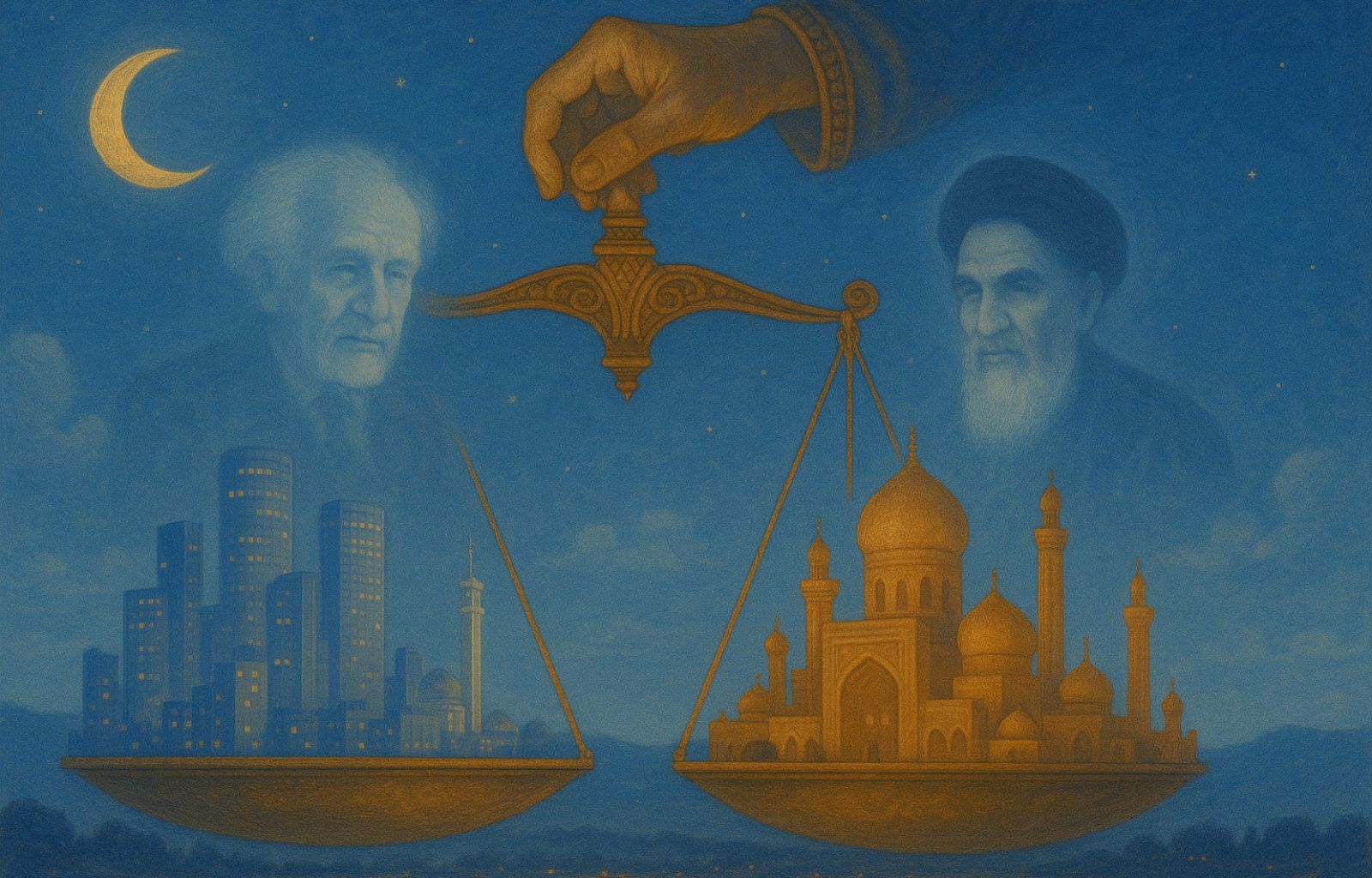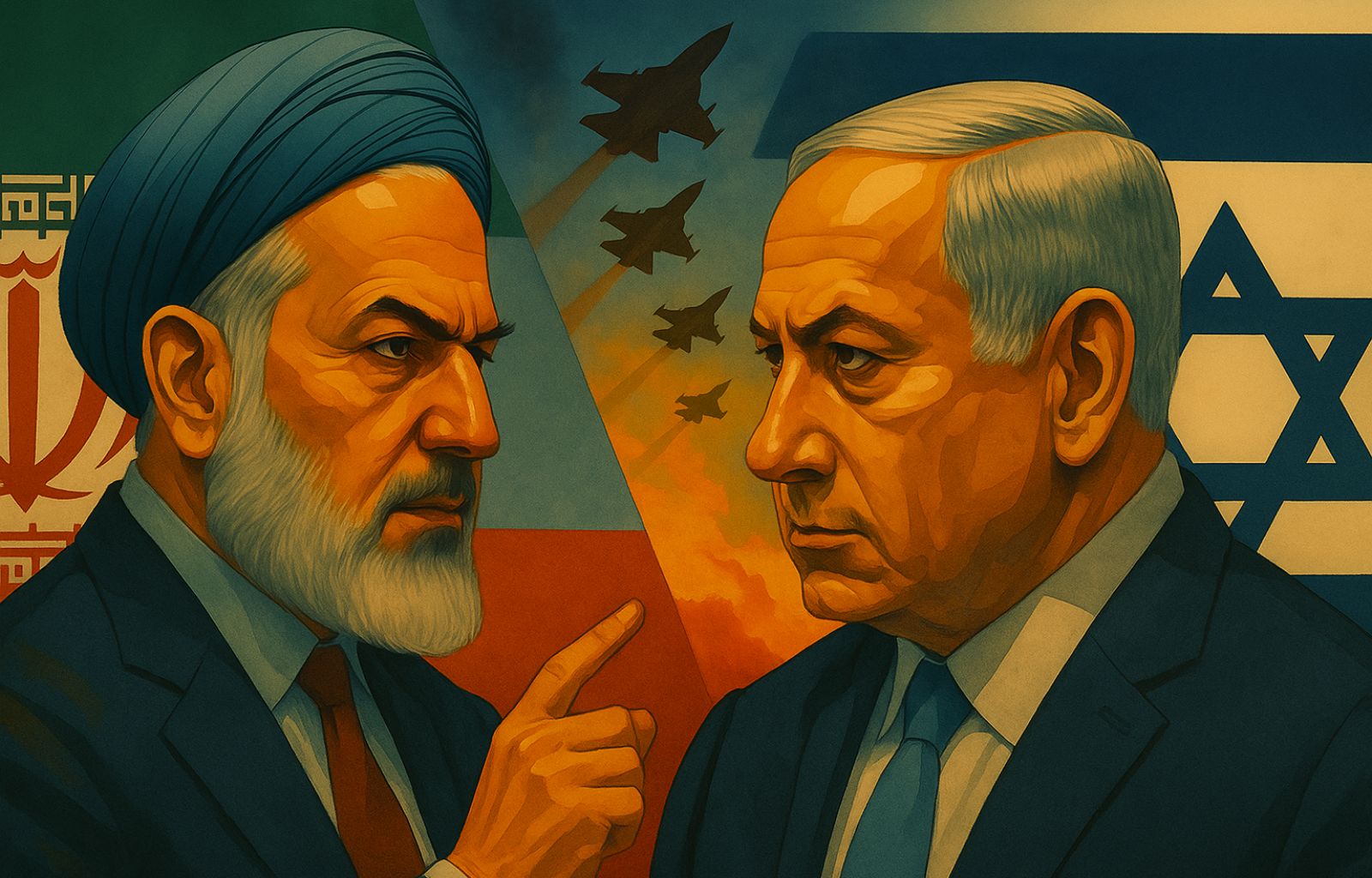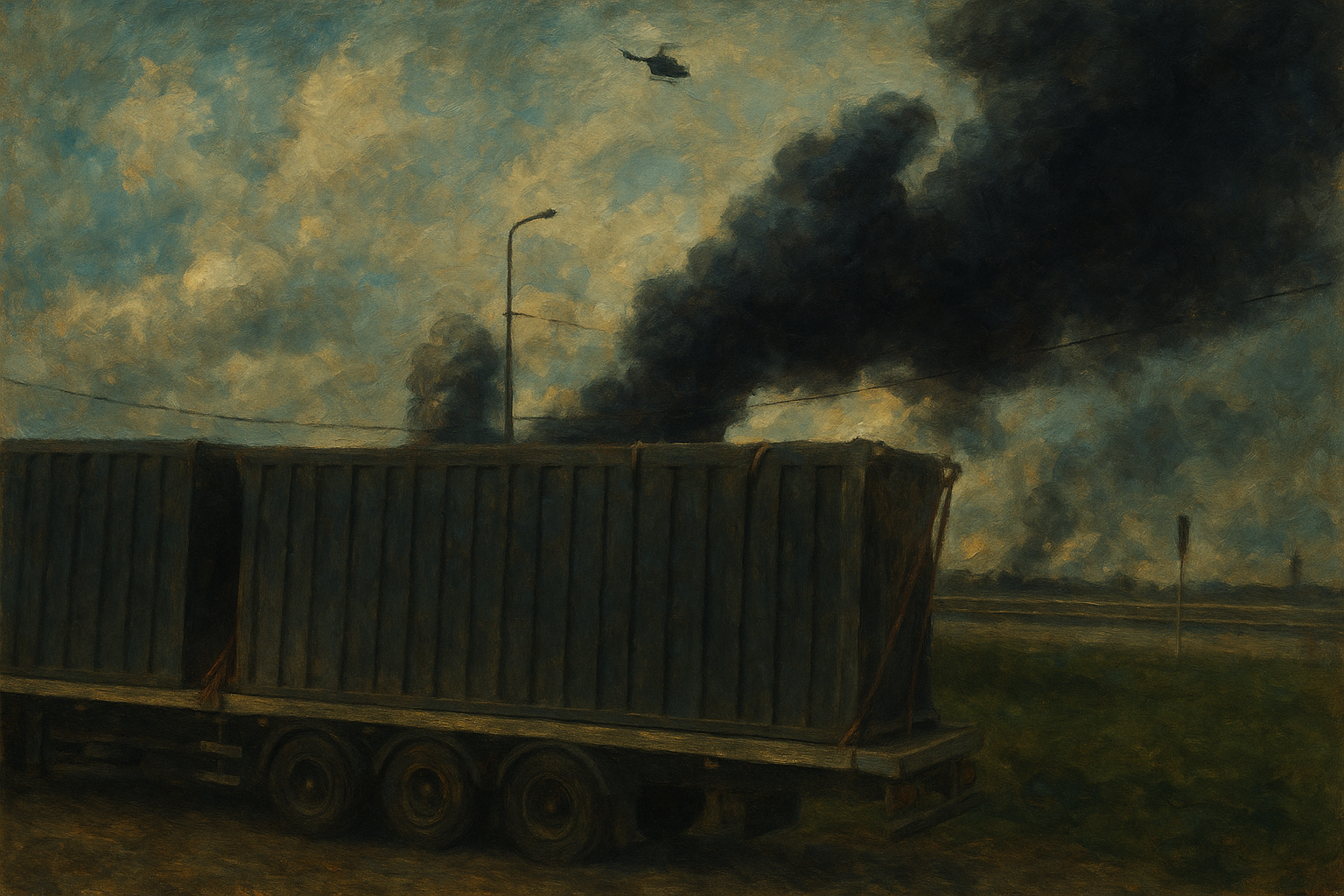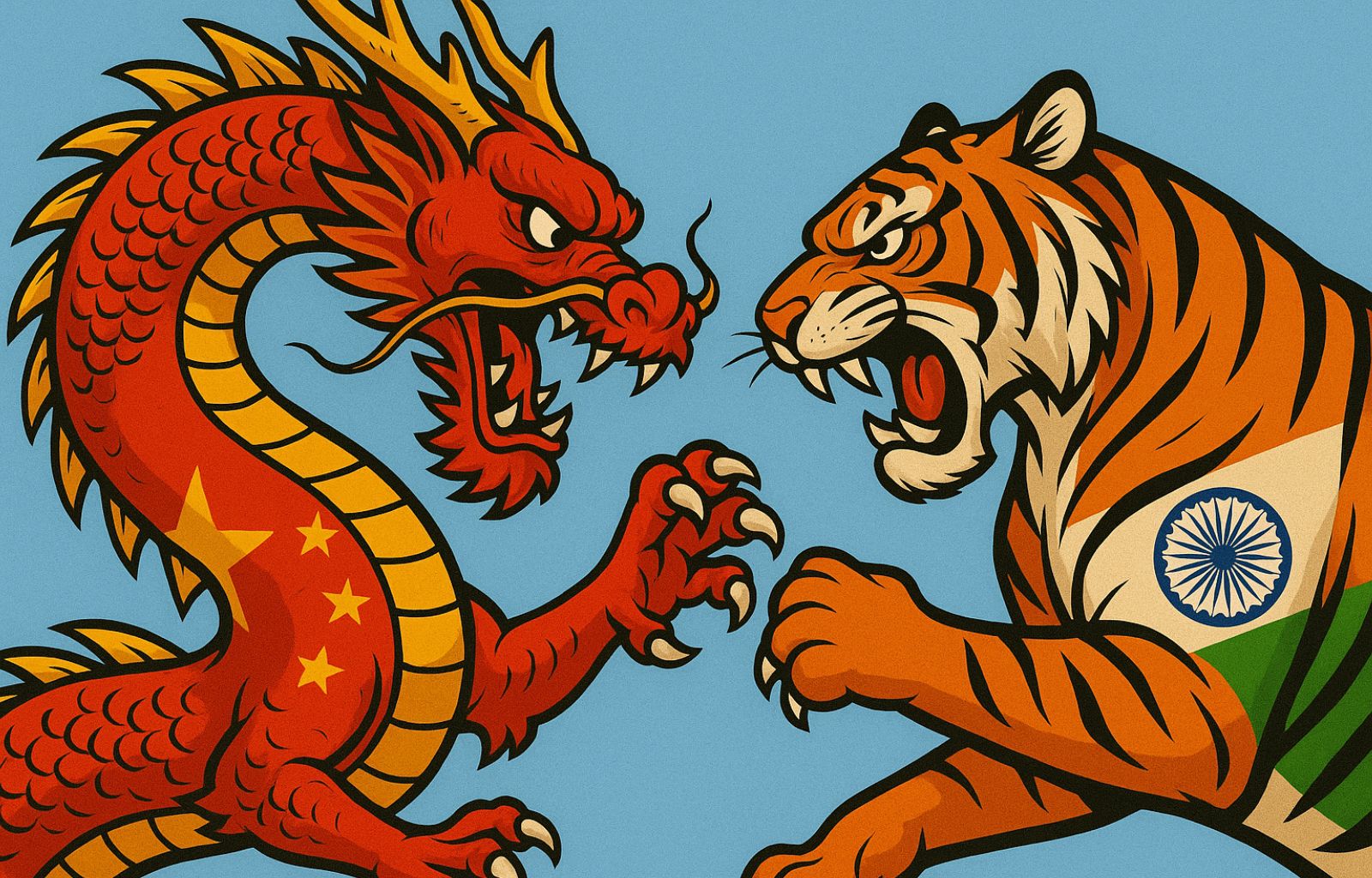Ukraine is Europe: chronicle of our trip to Kyiv
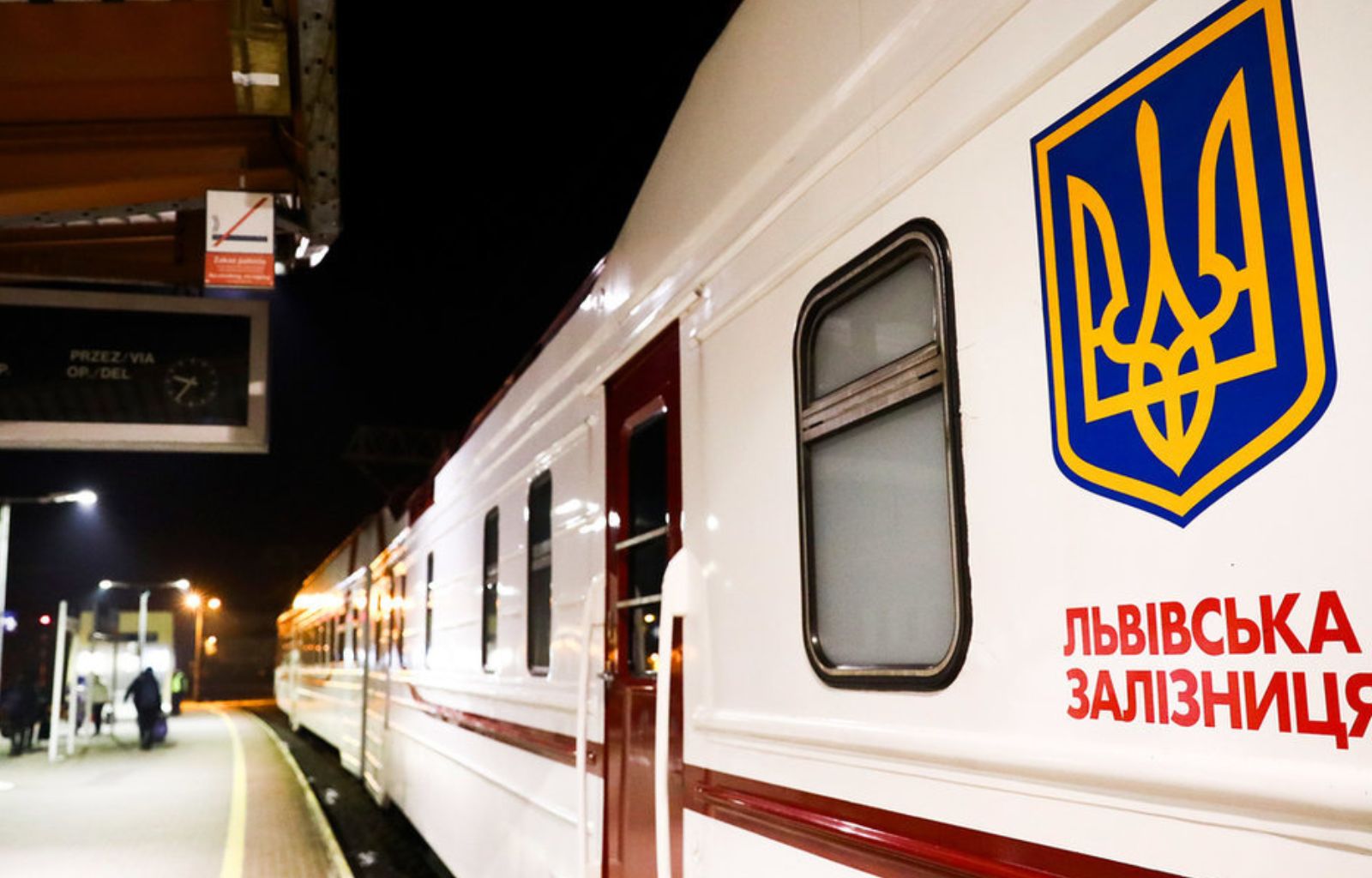
Ukraine is Europe, and Europe is Ukraine: this phrase is not understood in its true clarity until one crosses the border by train.
Our border was Poland: from the station of Przemyśl, a small town reminiscent of certain alleys in Prague, we took the night train to Kyiv. An hour before departure, we queued at an entrance ‘outside’ the station. This is because, to go to Ukraine, you have to go through passport control: a real border, which we are no longer used to on European soil. In any case – and unfortunately we have to remember this, because it is easy to forget – it is not (yet) a member state of the European Union.
But what is Europe? What is the European Union? Why does a border, a frontier, today seem so constricting and, at times, unfair? These are all questions that will accompany us over the next few days and to which an attempt will be made to give an answer.
Once the checks had been made, we boarded the train that took us to Kyiv: remarkably on time, comfortable and well-maintained – for those of us who have to deal with State Railways regional trains…
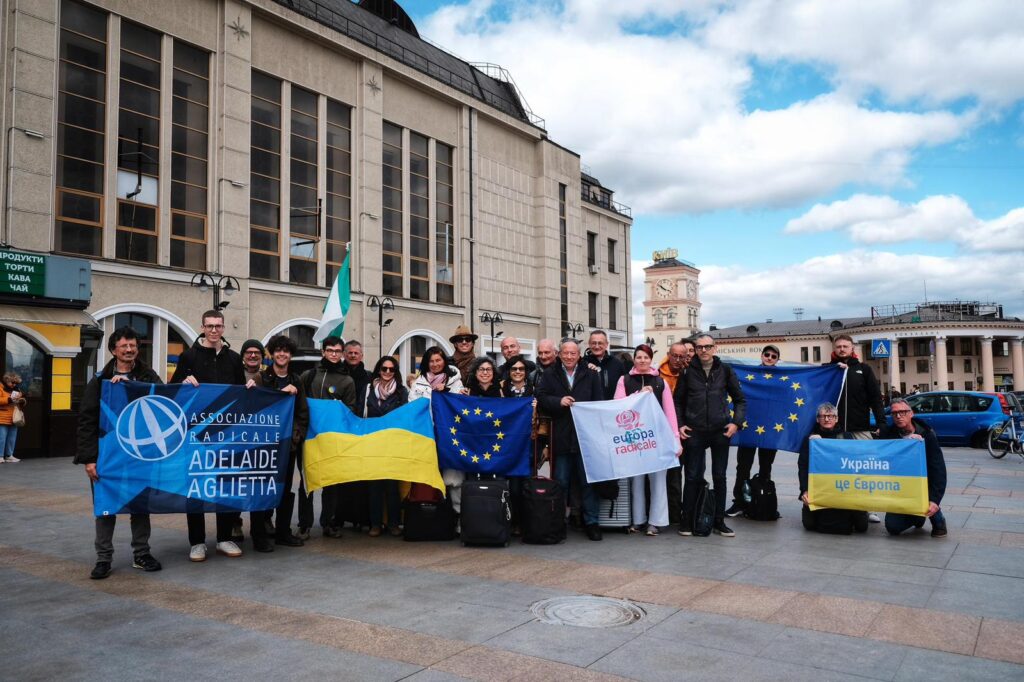
The journey, the night and the encounter with war
At around 1.30 a.m., just before passing near Lviv, a number of military personnel boarded the train: some checked passports to apply the stamp, others with a torch inspected certain areas of the train to check that there was nothing abnormal.
The military woman who checked our documents asked us where we were going.
“In Kyiv,” we reply.
“How long do you stay?” – “Until Saturday.” Saturday 10 May, the day when Kyiv, in Medvedev’s words, should be wiped out. Horror. To think of wiping out a city and its people: how is it even possible to imagine that?
The military woman gave us serious and responsible attention, but one could hardly hide the tenderness of a woman at war. Of course, not at the front, some will object – I can already hear the background murmur that what one does is never enough – but the anxiety of life is no less on a train or when Vladimir Putin’s troops are on the other side.
As he drives away, I wonder if we will really be able to respect what they have been suffering for three years now. And in the meantime, outside the window, even though it is night, we start to see Ukrainian flags on some of the buildings next to the railway. And yes, we feel like we are in Europe, even though we had to show our passports.
What is Europe? But of course Europe is Kyiv.
And it is an immediate feeling: as soon as you get off the train, you walk out of the station and, despite the obvious differences with our country, you feel a communion of intentions, moving towards a world in which democracy and freedom – hence rights and duties – go together.
Each light pole holds two Ukrainian flags. When there is a war, a war like this one, of invasion, the flag becomes a profound symbol of resistance to be displayed at every corner.
Life in Kyiv proceeds, only seemingly quietly.
Young people, participation and civic passion
At the meeting we had with the Prytula Foundation, one girl told us:
“I no longer react to the sound of alarms. And if they happen at night, I turn away. Coming to work in the foundation every day helps us, we feel we can do something and it distracts us“.
The civic passion of those young people made me think of us: in our country, most young people of university age are not interested in public affairs, which is not only politics, but also associationism.
In the years following university, the number declines even more, until we reach the 1980s generation, in which disinterest becomes almost total. Could it be that living in peacetime, without any particular problems, has made us think that there is nothing left to fight for? That what we have is already enough? That there is no more room for improvement?
It is a pity, because by standing idly by, we do not do justice to the other people who, in Ukraine and elsewhere in the world, defend the values of democracy and freedom.
And the guys at the Prytula Foundation – where some 1,000 drones a month are produced – are an example of civic passion.
The drones are donated to the military at the front, along with other support equipment, with the foundation’s brand (this is to prevent them from being sold, as they are produced through donations). They also produce medical equipment.
The common thread in all the meetings held on Thursday was proximity to the European Union.
At the Ukrainian Chamber of Commerce and Industry, the President expressed a willingness not to compete but to cooperate economically in the single market: something they are trying to make a reality by establishing bilateral agreements with European countries while waiting to actually enter the single market.
The same applies, on the issue of civil rights, to the LGBT rights NGO Insight: the European Union guarantees rights that are still lacking at national level. The possibility of having Pride does not automatically lead to improvements in domestic legislation, despite their advocacy work. On the contrary, two things have happened during this time of war: on the one hand, the LGBT community is more recognised and respected, given our soldiers at the front – the so-called ‘Unicorn Brigade’. On the other hand, however, LGBT soldiers are not equally respected, and when they die at the front, no one cares to go and retrieve their bodies or give them a funeral.
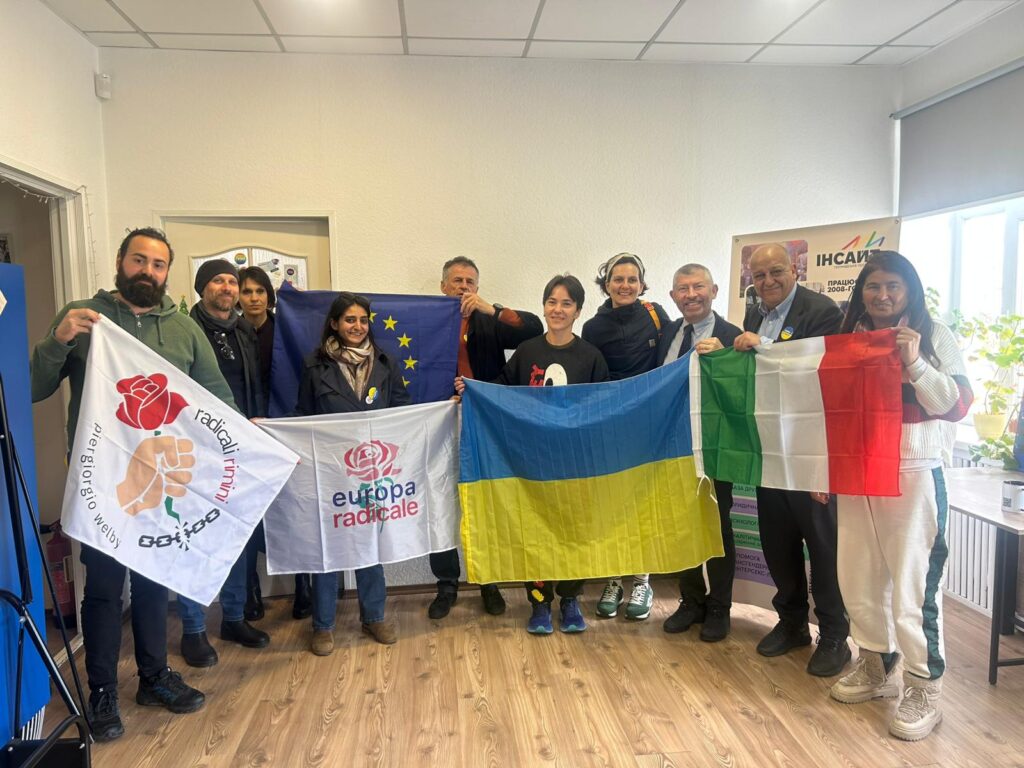
The solitudes of war
Reflecting, now as I write, one word comes to mind: loneliness.
Every association, every person we met, has its own loneliness to contend with.
The loneliness is also that of the mothers of prisoners of war, whom we met at the Center for Civil Liberties, an NGO awarded the Nobel Prize (2022) for documenting the war crimes carried out by Russia in recent years.
Natalya, mother of one of the defenders of Mariupol, recounted that her son was in the port city in those first 86 days before the fall of the city, which corresponded to the Russian takeover of the Azovstal steelworks.
In May 2022, he got out of Mariupol, complying with what the Russians said, but he and other fighters were imprisoned. His mother only learned in March 2023 that her son was alive and a prisoner, thanks to communications from the Red Cross.
There are people today who continue to know nothing about their sons, husbands, brothers. One does not know whether to mourn them or continue to hope. Living in uncertainty, when for a loved one you would do anything, digs pain into families who have no answer.
Natalya tells us that her son was being held in Olenivka prison in July 2022, when the Russian Federation carried out a targeted attack on the prison: a bomb killed 50 people.
That night, 122 people from the Azov division were in the prison and many of them – fifty, it seems, according to journalistic sources – died. Some lost too much blood, because the Russian authorities did not let the doctors in.
More than 60 people have been seriously injured: there are reports of irreversibly life-threatening amputations. Many of them, despite their serious injuries, are still detained.
Communication with prisoners is absent: some say they can write letters to their families, but these letters have never arrived.
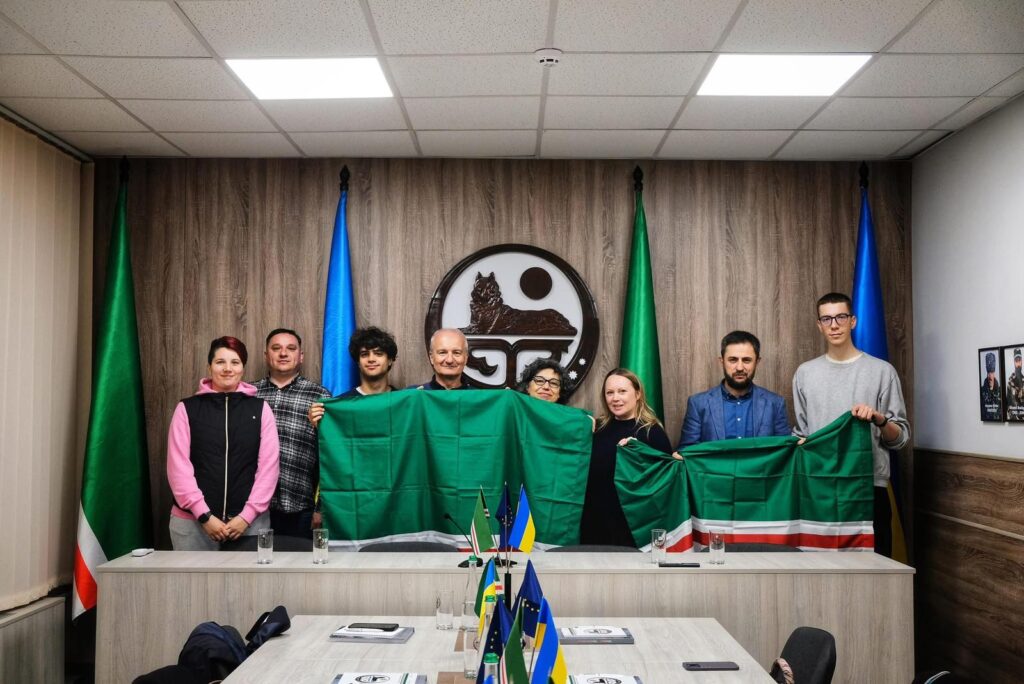
Another loneliness, which every European country will have to take responsibility for, by inflicting the harshest sanctions on the Russian Federation.
Today, at 3pm, we will demonstrate at the Maidan.
Some comrades tell me that the flags placed in the large flowerbed in the square two years ago were far fewer. Today it is difficult to find a space to add another one, in memory of the dead and the disappeared.
The war continues. But Kyiv lives on. In front of our hotel, European and Ukrainian flags fly together on a large roundabout.
Ukraine is Europe and Europe is Ukraine.
We reaffirm this today in Kyiv, on Europe Day.

